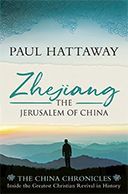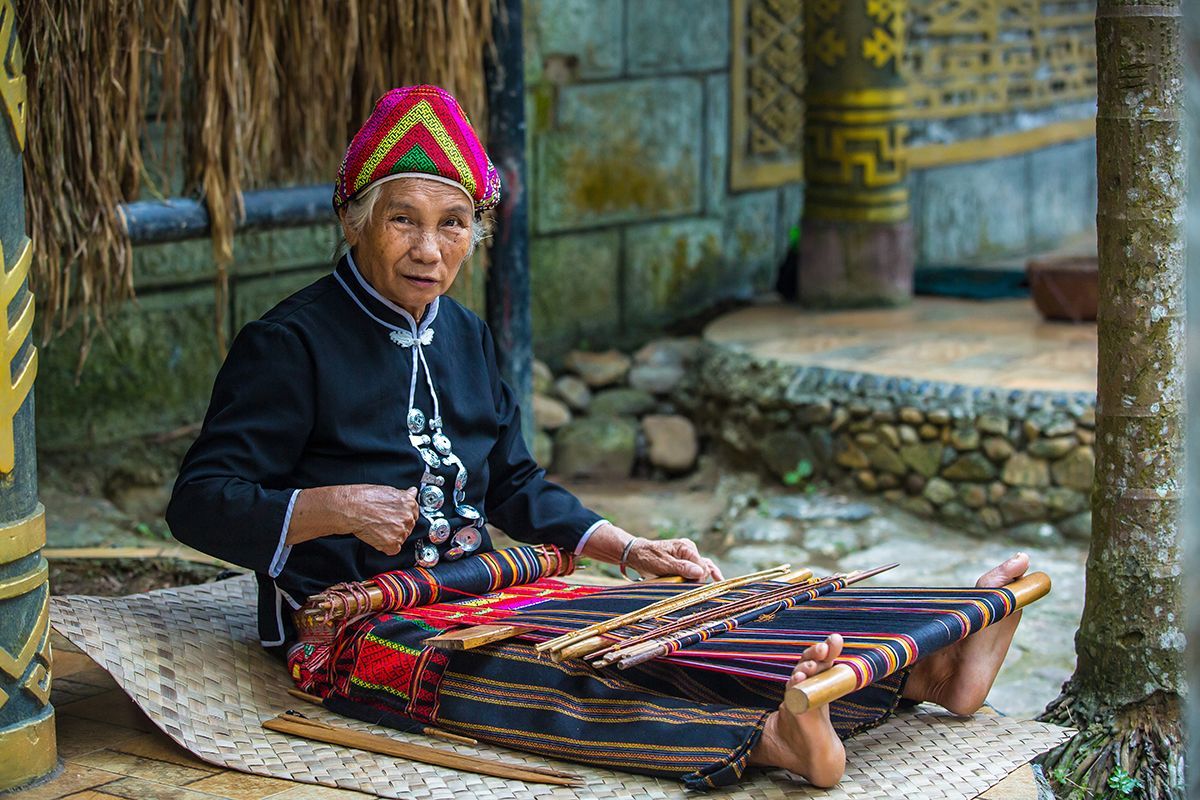1850s
Recruits from Afar
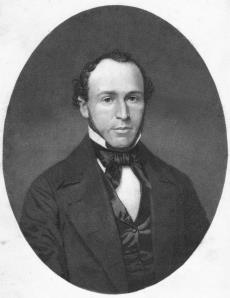
William Aitchison.
As the 1850s unfolded, Evangelical missionaries began to trickle into Zhejiang. One of the new recruits was William Aitchison, who was born in Glasgow, Scotland, but raised in Connecticut after his family emigrated to the United States.
After gaining work in a factory, Aitchison heard the gospel and surrendered his life to Christ. In due course the Holy Spirit called the young man to serve in China, and after arriving in 1854, he made his way to Pinghu in northeast Zhejiang.
Aitchison became proficient in Chinese and began sharing the gospel with the people of Pinghu. His excitement at finally being able to communicate God's Word was tempered with the realization that it would take time to break up the hard ground of a people with no inclination to seek the Savior of the world. Aitchison reported:
"For upwards of three weeks we have gone almost daily into the city and delivered our message in the most crowded thoroughfares. Our audiences listen with much apparent interest, and the intellectual knowledge of Christianity is plainly on the increase. The numbers who come for private conversation is also much larger than at the outset. In a few cases we have almost hoped that the Holy Spirit was commencing His awakening work on the heart, but as yet we can speak confidently of none."[1]
Months went by, with Aitchison growing increasingly frustrated at the lack of progress. In 1856 he wrote home:
"The gross darkness in which the heathen mind is enveloped is strikingly exhibited in the inquiries proposed or remarks made.... Preach to them Christ and Him crucified, relate the story of His birth, His instructions, His miracles, His death; show the need of an atonement of sin, and the way in which the Son of God provided it; and when you have finished the discourse, someone will inquire if Christ is the King of England. Talk of the soul, its nature and destiny, the bliss or woe that await it, the wisdom of lightly esteeming this world and of seeking heaven's happiness, and not unlikely some apparently serious person will interrupt you by begging to know the price of your coat."[2]
Aitchison didn't give up, however, and with typical Scottish tenacity he continued to share the good news with as many people as possible. His frustrations gradually gave way, and he gained a firm belief that he was experiencing the very first drops of rain, in what would one day become a mighty flood of God's blessing in Zhejiang. He wrote:
"Acquaintances are beginning to be formed. Prejudice is wearing away. The report of our doctrines and object is spreading in all directions. We see the first faint glimmer of that light which is destined to increase more and more unto the perfect day.... We are not without the hope that our residence here, unimportant as it may seem to some, will be followed by a blessing whose consequences will extend beyond the immediate circle of our operations."[3]
A century-and-a-half later, his predictions have been fulfilled in a marvelous way, and today Zhejiang boasts the highest percentage of Christians of any province in China. Although William Aitchison was forced to leave Pinghu in 1858 when political forces necessitated his evacuation, he had faithfully tilled the soil and scattered the seed of God's Word in a province that had experienced almost no gospel light up to that time.
Early Chinese Disciples
Many of the earliest Chinese converts in Zhejiang were exposed to the gospel while attending one of the mission schools in the province. The missionaries in charge of the schools openly taught the Bible, and gradually the young men and women in their charge began to understand the claims of Jesus Christ.
One of the more successful of the early converts was a man named Xiang Yinggui, who came from a long line of Confucian scholars. Despite his great knowledge, Xiang felt empty inside and knew there must be more to life. From his youth he had dutifully attended temples, but bowing down and sacrificing to idols left him feeling unfulfilled.
Xiang entered the mission school at Ningbo in 1854, and for the next few years his understanding of the gospel slowly grew. He later testified: "God's grace was within my heart, as when the light dawns in the East. Finally, when I understood more clearly, I made the decision to trust in God and be the disciple of Jesus. Just when I was about to believe, my brother also received grace through the Holy Spirit to believe the truth."[4]
When news emerged that Xiang and his brother had become followers of the 'foreign doctrine,' the strong opposition from their family members and relatives reflected the kinds of struggles many Chinese Christians experienced at the time. Xiang Yinggui wrote:
"When my mother heard that both of us believed, she was greatly incensed, considering that we had taken up with heretical belief and cast away our ancestors. She wept and wailed night and day, and resisted us with all her might. Besides, there were our other relatives, greater and lesser uncles, cousins, and our neighbors, who used their best endeavor to oppose our believing. By the help of God, we two brothers were unchanged in our purpose."[5]
Xiang Yinggui persevered, and later became a key church leader in the Ningbo area, wholeheartedly serving Christ for many years.
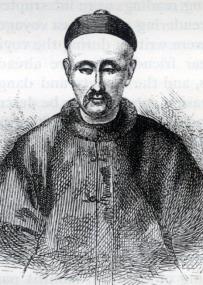
Xiang Xinsang (Stephen Dzing).
Another early disciple in Zhejiang was Xiang Xinsang, better known in the Western world as Stephen Dzing. He was described as
"an educated man, practicing as a physician, and owning a small house with some land attached, about 12 miles [19 km] south of Ningbo. A thoughtful man by nature, he had sought peace of mind not only upon the principles of Confucius, but also in the rules of Buddhism. Medical help afforded to one of his children by a native Roman Catholic, had made him acquainted with their doctrines.... He soon became a convert, and zealously propagated his new-found faith among his family and acquaintances."[6]
Over time, Xiang studied the Scriptures and, under the influence of William Russell and Bao Youyi, turned his back on Catholicism. He was baptized in Ningbo, and "after a full and clear renunciation of error and protestation of the truth...he joined 35 other Chinese Christians in receiving the Holy Communion."[7]
Xiang earnestly assisted the missionaries as they evangelized throughout the district, and he became a zealous student of the Scriptures.[8]
As time went by, however, the Evangelical missionaries were disturbed to find that vestiges of Catholicism remained in their disciple. Russell spent much time trying to purge Xiang Xinsang's mind of the Catholic doctrines he had formerly embraced, but the struggle for his doctrinal purity concluded when he failed to recover from an illness in March 1862. Russell wrote: "His death was happy and triumphant; in the closing hours of his life he committed himself with confidence into the hands of that Lord and Savior whom he had so evidently and intelligently loved and so zealously served."[9]
A Trail of Churches
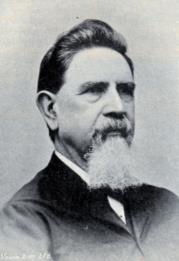
Griffith and Margaret John.
The zealous Welsh evangelist Griffith John and his wife Margaret were among the first Evangelical missionaries to travel throughout Zhejiang in the 1850s. During their long career in China, the Johns left a trail of thriving believers wherever they traveled, and the same happened when they passed through Zhejiang Province.
The Johns set out from Shanghai in March 1858 and rented a house at Pinghu in northeast Zhejiang. During the summer months they spent much time in the town, "preaching daily to excellent congregations. A class was formed of six enquirers, and afterwards a church was established."[10]
The Johns soon fixed their eyes on the famous city of Hangzhou, which Westerners of the day had nicknamed the 'Athens of China.' There, Griffith and Margaret found a small group of Christian women who had yet to outwardly declare their faith. Customs of the era dictated that a woman should never meet with a man, especially a foreigner. The presence of Margaret, however,
"dispelled all fear, and these good women gladly came forward to make a public confession of their faith in Jesus. When Mrs. John entered the house, an immense crowd followed, and as many as possible crowded into the guest room where she sat. The host and hostess found it impossible to restrain the curiosity of the people....
Mr. John examined the female candidates, and those whose faith satisfied him were admitted to the church by baptism.... A service for the men was next conducted in the adjoining room, and five were admitted as members."[11]
© This article is an extract from Paul Hattaway's book 'Zhejiang: The Jerusalem of China'. You can order this or any of The China Chronicles books and e-books from our online bookstore .
1. Charles P. Bush, Five Years in China, or, The Factory Boy Made a Missionary: The Life and Observations of Rev. William Aitchison, Late Missionary to China (Philadelphia, PA: Presbyterian Board of Publication, 1865), p. 185.
2. Bush, Five Years in China, pp. 183-4.
3. Bush, Five Years in China, p. 185.
4. Robert E. Speer, Missionary Principles and Practice (London: Fleming H. Revell, 1902), p. 377.
5. Speer, Missionary Principles and Practice, p. 377.
6. Moule, The Story of the Cheh-Kiang Mission, p. 54.
7. Moule, The Story of the Cheh-Kiang Mission, p. 55.
8. A little-known book about Stephen Dzing was published in 1868. See H. Moule, Narrative of the Conversion of a Chinese Physician (London: Nisbet & Co., 1868).
9. Moule, The Story of the Cheh-Kiang Mission, p. 149.
10. William Robson, Griffith John: Founder of the Hankow Mission, Central China (New York: Fleming H. Revell, 1890), p. 24.
11. Robson, Griffith John, pp. 24-5.

